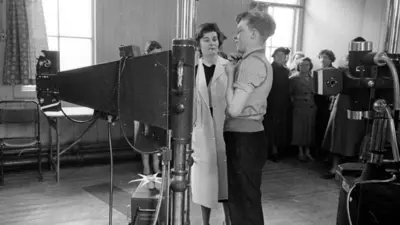We've updated our Privacy and Cookies Policy
We've made some important changes to our Privacy and Cookies Policy and we want you to know what this means for you and your data.
Profile: Chinese dissident Hu Jia
Hu Jia is one of China's most prominent activists and dissidents.
He earned a reputation for being unafraid to take on the government over a range of issues, including religious and political freedom, HIV/Aids and the environment.
After spending three-and-a-half years in jail for "inciting subversion", he was freed in June 2011, his wife said.
The 37-year-old has won the European Union's top human rights award, the Sakharov prize, and is considered by the London-based group Amnesty International as a former prisoner of conscience.
His wife, Zeng Jinyan, has also faced harassment by the authorities, having effectively been under house arrest while her husband was incarcerated.
Open letter
Starting with advocacy for rural Aids sufferers, Mr Hu emerged as one of China's most vocal advocates of democratic rights, religious freedom and self-determination for Tibet.
As part of his work, he helped found an organisation dedicated to helping children affected by HIV and Aids.
He and his wife also briefed overseas journalists and human rights organisations about abuses taking place in China, according to Amnesty.
Mr Hu became particularly outspoken in the run-up to the 2008 Olympic Games in Beijing, publishing an open letter to the Chinese government entitled The Real China and the Olympics, which called for an end to human rights abuses in the country.
"Please be aware," he wrote, "that the Olympic Games will be held in a country where there are no elections, no freedom of religion, no independent courts, no independent trade unions; where demonstrations and strikes are prohibited; where torture and discrimination are supported by a sophisticated system of secret police; where the government encourages the violation of human rights and dignity, and is not willing to undertake any of its international obligations."
In 2007, he was placed under house arrest after he and his wife made a documentary about their experiences of living under constant police surveillance. The film was posted .
Prisoners of Freedom City showed the couple remained under police guard even when Ms Zeng went to hospital to give birth in November 2007.
Empty seat
In February 2008, Mr Hu was arrested and charged with "inciting subversion of state power and the socialist system", a charge often cited to jail opponents of the state, and later sentenced to three-and-a-half years imprisonment.
The charges related to five articles Mr Hu had written, as well as interviews he gave to journalists in which he was critical of the authorities.
The state-run Xinhua news agency reported that he had "spread malicious rumours, libel and instigation".
During his incarceration, human rights organisations expressed concern that Mr Hu was not receiving adequate treatment for the chronic liver condition he suffers, cirrhosis.
Ms Zeng, who has become a regular blogger since her husband's arrest, was reported to have been removed from Beijing by the police during the Olympics.
In late 2008, Mr Hu won the European parliament's top human rights award, the Ōé¼50,000 (┬Ż44,000) Sakharov prize.
Because he was in prison, Mr Hu was represented by an empty seat in Strasbourg, where the parliament gave him a minute-long standing ovation.
Top Stories
More to explore
Most read
Content is not available








